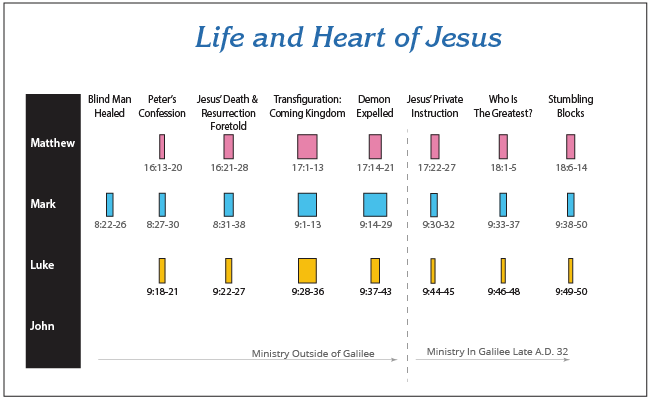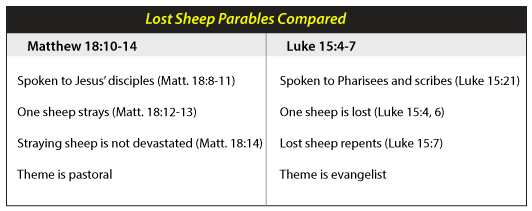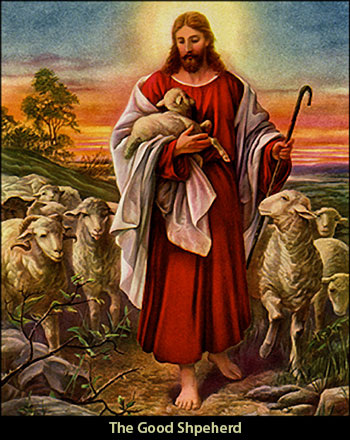We are not as strong as we think we are. The truth is we are actually very vulnerable to critical words from others. We are easily deceived by the body language of friends and enemies alike. The old adage that sticks and stones will break my bones but words will never hurt me, is a lie. The truth is words can be devastating and the lingering effect can last for months, years and decades, even a lifetime. The prophet Jeremiah captured the truth very accurately when he wrote these words in Jeremiah 17:9, “The heart is more deceitful than all else and is desperately sick; who can understand it?” We deceive ourselves into thinking we are strong. The Bible reveals this is true by the many accounts it provides of people being deceived by various individuals. Words do hurt, causing people to stumble. Nasty criticism can motivate anger and motivate others to sin. Words of false doctrine also hurt. False words cause Christians to stumble spiritually. The prophet Hosea 4:6 says, “My people are destroyed for lack of knowledge.”
Setting Of The Parable
This study comes from Matthew 18:10-14. It is about a Christian who has gone astray and the good shepherd who seeks to help. The study is about one hundred sheep, one that goes astray and the shepherd who goes looking for the straying lamb.

But before getting into the study, we need to determine if the Luke 15:4-7 parable about one hundred sheep, one that goes astray and the shepherd who goes looking for the straying lamb is identical to the Matthew parable. A casual comparison would seem to suggest that they are the same parable. But such a conclusion can result in the wrong conclusion and application.
If we compare the Matthew 18:10-14 and Luke 15:4-7 parables, we discover that while the wording is similar they are not the same parable. They were not given on the same occasion. For example, the Matthew parable was given to Jesus’ disciples (Matthew 18:1), but the Luke parable was given to the religious leaders, Pharisees and scribes (Luke 15:2-3). The parable in Matthew was given while Jesus was in the region of Capernaum. The Luke parable was given nine months later in Perea. We will discover soon that the two parables are different. In the Matthew parable the lamb strays and is devastated, but in Luke it is simply lost. The Matthew parable is pastoral in nature and the Luke parable is evangelic.

Before Jesus gave the parable, the disciples had argued about who was the greatest person in the kingdom of heaven (Matthew 18:1). They were stumbling blocks to each other motivating their fellow disciples to sin. In response, Jesus used a child to teach them that humility is the chief characteristic of those who enter heaven. Arguing about who is the greatest motivates others to sin – to stumble. Then Jesus expanded His warning saying that it would be better to cut off our hands and feet or pluck out our eyes than cause someone to stumble. Then Jesus gave the parable of the ninety-nine sheep and the one lamb who strayed. Here is the first verse of the parable.
What do you think? If any man has a hundred sheep, and one of them has gone astray, does he not leave the ninety-nine on the mountains and go and search for the one that is straying? Matthew 18:12 (NASB)
The Straying Lamb
Jesus begins the parable by asking the disciples for their opinion. What do you think? He wanted them to think and not just listen and He wants us to think too! Jesus’ parable was about a man who had a great number of sheep. That is, he was wealthy. The common people had much smaller flocks. The rich man’s sheep have been feeding on the lush vegetation on the mountain sides. One can imagine a flowing stream caressing the sides of the mountain and sweeping down into the valley. The sheep had everything that they needed, but for some reason one of the lambs goes astray.

Two times we are told that the lamb has strayed. He is not described as being lost. Twice Jesus says that the lamb was straying. That is, two times He stated it was still straying. For the word “straying” Jesus uses the Greek word planao which means “to deceive, to stray, to mislead, to wander or to wander off the path.” That is, the lamb had left the flock and was on its own journey.
It is important to note that the description of the single lamb in the Luke’s parable is different (Luke 15:4, 6). Jesus does not say the lamb was straying, planao. Instead, He says the lamb was lost and the Greek word that He uses is apollumi. This Greek word means “to destroy or perish.” A lamb that strays is not a dead sheep. A lamb can stray and not be lost. The lamb in the Luke parable is different from the lamb in the Matthew parable.
The Searching Shepherd
Then Jesus focused on the shepherd of the sheep. He says that a good shepherd will leave the ninety-nine and search for the one lamb.
If it turns out that he finds it, truly I say to you, he rejoices over it more than over the ninety-nine which have not gone astray. Matthew 18:13 (NASB)
I have found that there are some shepherds or pastors and even church leaders who because they have a large church are somewhat indifferent to straying lambs – Christians – in their church. The attitude is that we have so many people in the church, who cares if one or several of them stray. I am so busy and they are so spiritually immature. Maybe the lamb is a trouble maker, a complainer, a gossip, one that holds to a different theological belief or in grief over a personal tragedy or loss. The shepherd thinks to himself, “I have so many Christians in the church who do not have these problems, and wonders if it is best that the lamb leaves? I have better things to do!” This attitude can develop after years of critical Christians and working with difficult leaders. A callousness can emerge.
Jonah is an important example, in the extreme, a prophet, who did not care for an entire city called Nineveh. He ran away from God since he wanted the Ninevites to be destroyed. The Pharisees are another example of religious leaders who did not care for the sick and spiritual hurting. They cared more about their rules and ritual.
What a rebuke this parable is to uncaring shepherds. The shepherd in Jesus’ parable has great concern and compassion when he leaves the ninety-nine and goes after just one lamb. That single lamb was more important than all of the other sheep. Jesus’ point is that the good shepherd cares for even the “odd-ball” lamb – the straying one. It is the mark of a good shepherd. Grant Osborne writes,
The image is powerful; would shepherds actually leave their flock helpless as they searched for a stray? The possible hyperbole strengthens the picture – God would![1]
Isn’t that a wonderful insight into our God? He is a God who cares for everyone, including you!
Shepherds And Strayers
Scripture gives us many examples of shepherds who have pursued straying sheep. For example, the apostle Paul wrote a letter to the straying congregation in Galatia. He was concerned that they were listening to and had accepted false doctrine. Listen to his words.
I am amazed that you are so quickly deserting Him who called you by the grace of Christ, for a different gospel; which is really not another; only there are some who are disturbing you and want to distort the gospel of Christ. But even if we, or an angel from heaven, should preach to you a gospel contrary to what we have preached to you, he is to be accursed! As we have said before, so I say again now, if any man is preaching to you a gospel contrary to what you received, he is to be accursed! Galatians 1:6 -9 (NASB)
Paul continues to warn and rebuke these straying Christians. This is the correct theme of the parable – dealing with Christians who are straying spiritually. Jesus’ parable is not about social issues such as the man whom the Good Samaritan helped or the many diseased and possessed people whom Jesus healed. The context before the parable is about those who cause others to stumble. The context after the parable about helping those who stumble. This reveals that the context of the parable is also helping those who stumble or go astray. Jesus’ parable is not about the loss of salvation.
In 2 Thessalonians Paul comforts the Christian at Thessalonica who had been told that the tribulation had already come. They were upset. So in 2 Thessalonians 2:1-3 Paul encourages them that a general apostasy would come and the Antichrist would be revealed first. In 1 and 2 Corinthians the apostle rebukes the saints in Corinth for their many sins. Almost every chapter deals with a different sin. 2 Corinthians is a lengthy defense of Paul’s apostleship against some critics. At the end of the letter Paul asks, “Test yourselves to see if you are in the faith: examine yourselves!” The apostle was concerned for these straying sheep. They were in sin, fighting with one another, causing division, ignoring sin, critical, filing lawsuits against one another and hoarding food during the Lord’s Supper. So, Paul asks, “Are you real?”

The book of Philemon gives us insight into Paul’s heart. He cared for individuals too! Philemon is a letter about a slave. In the letter Paul pleads on his behalf to the slave’s owner, Philemon. In verses 15-16 the apostle asks for the man’s freedom and not harm him for having run away. Onesimus had violated civil law by running away from his master.
In 1 Thessalonians 5:12-14 the apostle urges all of us to care for the unruly, fainthearted and the weak.
We urge you, brethren, admonish the unruly, encourage the fainthearted, help the weak, be patient with everyone. 1 Thessalonians 5:14 (NASB)
Lost lambs or unbelievers are not usually cuddly and soft handling every situation acceptably. The Greek word that is translated as “fainthearted” has the idea of being discouraged. It is actually two Greek words combined together. The first word is oligos which means “small.” The second Greek word is psuche which means “soul.” Putting the two words together we have a picture of a “small soul.” They are struggling and feel vulnerable and need help. That is a straying lamb.
In 1 Corinth. 7:5-6 Paul writes that God uses individuals to comfort the saints when he writes,
For even when we came into Macedonia our flesh had no rest, but we were afflicted on every side: conflicts without, fears within. But God, who comforts the depressed, comforted us by the coming of Titus . . . 2 Corinthians 7:5-6 (NASB)
Paul needed encouragement and so God sent a man with a pastor-shepherd’s heart.
In 2 Timothy, Paul encourages Timothy, a pastor, to be patient with the quarrelsome and those in opposition.
“But refuse foolish and ignorant speculations, knowing that they produce quarrels. The Lord’s bond-servant must not be quarrelsome, but be kind to all, able to teach, patient when wronged, with gentleness correcting those who are in opposition, if perhaps God may grant them repentance leading to the knowledge of the truth . . .” 2 Timothy 2:23–25 (NASB)
My tendency is to move slowly and cautiously with such individuals. I struggle with confrontation. I find that most people are not very interested in having their sin identified. But after Paul urges Timothy to be kind to all, to teach and to be patient when wronged, he then says “with gentleness correct them.” That is rescuing a straying lamb.
Paul, a shepherd, warned entire churches and individuals about doctrinal errors and sin. He sought to encourage and minister as he could. His ministry was loving and gracious.Paul suffered all along the way so that others might hear the gospel and be more like Jesus Christ. He did this by teaching, exhortation, loving rebuke, encouragement and counseling. His ministry was pastoral in nature.
This leads us to the final method for helping straying sheep. The final method is attempting to rescue a sinning Christian from their sin. It is called church discipline and we will discover it in the next study (Matthew 18:15-18). That was Jesus’ instruction to the disciples who heard this parable.
Will Of God
In the parable Jesus could have proposed that the man had only one or two lambs, but He doesn’t. If the man had proposed only one or two lambs, that would have meant the man was of the middle class or poor. Imagine such a man losing one of his lambs. Then he would have had only none or one lamb. In such a situation the owner would have surely gone after the one lamb. Losing your only lamb or one of your two lambs would have surely motivated him to go after the straying lamb. But Jesus didn’t propose one, two or three lambs; instead, He proposed that the man had one hundred sheep and one went astray. Such an owner could have reasoned that he had enough sheep and was too busy to go after the one straying lamb. Why did Jesus’ parable propose that the owner was wealthy? The answer is that Jesus wanted us to understand how very important it is to go after even a single straying lamb? Then Jesus concluded the parable with these stunning words,
So it is not the will of your Father who is in heaven that one of these little ones perish. Matthew 18:14 (NASB)
The purpose of the parable is summarized in this verse. Jesus wants us to know that it is the will of Father to go after that one difficult and maybe discouraged straying lamb. Even if you had 120,000 Christians in your congregation or the straying lamb was ninety-four years of age, we are to go after the one straying lamb.
Now draw your attention to the last word in the verse, “perish.” The Greek word that is translated as “perish” is apollumi. Earlier we discovered that the word means “to destroy or perish.” This reveals that Jesus is concerned that the staying lamb will be destroyed spiritually. A real life event occurred on the night in which Jesus was betrayed when He told Peter that Satan wanted to sift him as wheat (Luke 22:31-32). Then Jesus said that He had prayed that Peter’s faith not fail. Jesus was concerned about spiritual devastation and not the loss of salvation. Earlier in Matthew 16:18 Jesus predicted that God would use Peter in the building of His church. So, we should not understand Jesus’ statement in Luke 22:31-32 as a potential loss of salvation. Jesus was concerned about spiritual devastation. Even the context makes this meaning clear.
Was one of the disciples devastated due to the arguing about who would be the greatest in the kingdom of heaven? The arguing had been protracted. Was someone hurt? Is this why Jesus gave multiple illustrations and this parable? The answer appears to be yes! It is the will of the Father that we go after that single straying lamb. Pray for them as Jesus did but go after them and help!
References:
1. Grant R. Osborne. Matthew. Exegetical Commentary on The New Testament. Zondervan Publishing Co. 2010, p. 681.